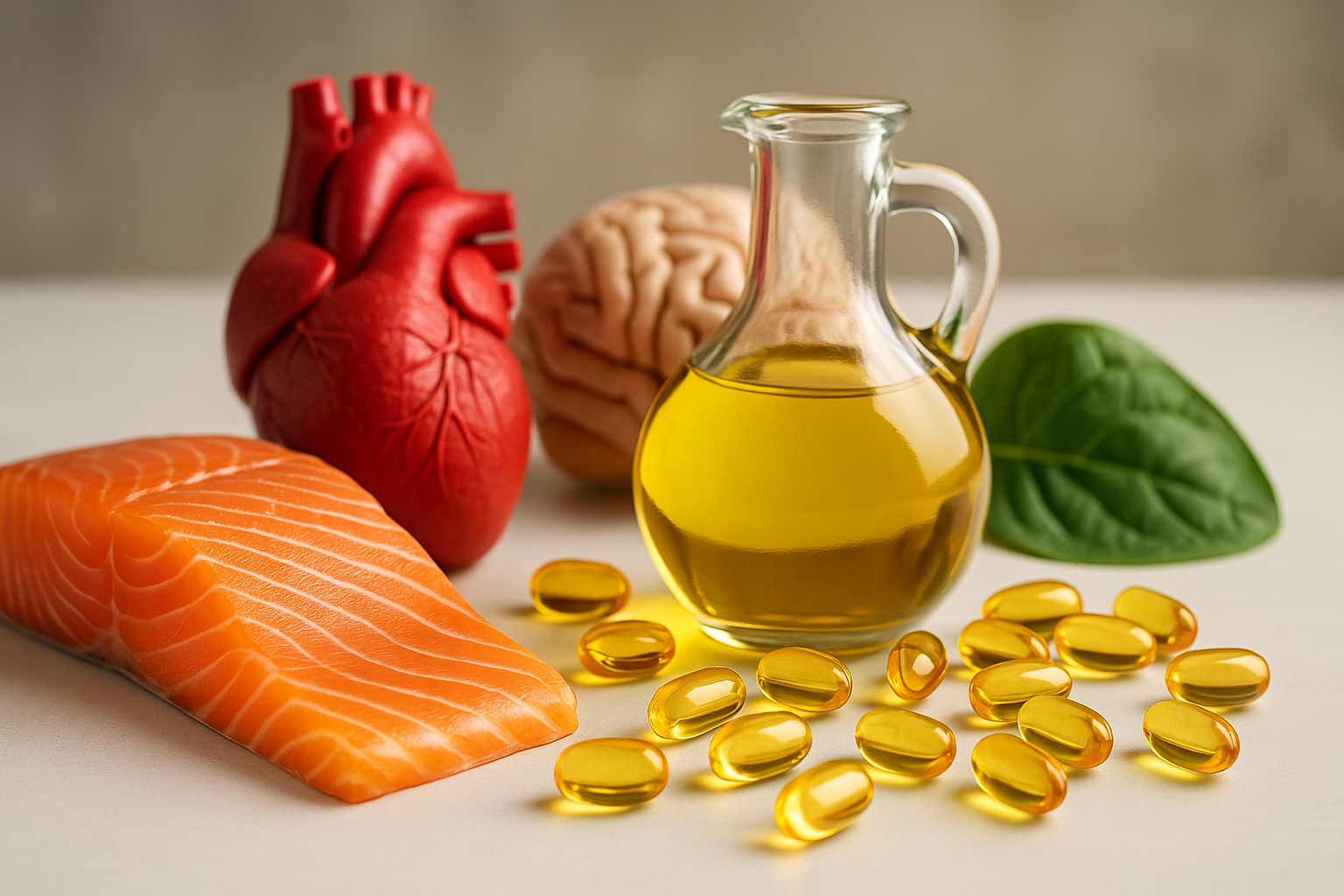
Stress levels in this country are still very high. Almost 60 percent even say that their lives have become even more stressful in the past three years. What's more: high and above all permanent stress have an impact on physical and mental health. This needs to be combated. Various studies show, for example, how well meditation can work against stress, and our organism should always be supplied with sufficient vitamins and other substances from nature - especially in times of high stress.
"Germany is stressed. Or are we just talking about it more? Although weekly working hours are decreasing, absenteeism due to psychological complaints such as depression, anxiety and stress disorders is increasing - by almost 90 percent in the last 15 years. What is the nation's current stress situation? What stresses men, women, young, old, parents and singles? Why does stress make some people ill and others not? How relaxed is Germany and how satisfied are people with their lives? How can digital society and the world of work be shaped in a healthy way? Where are employers challenged and what can each individual contribute?"
With this sentence, Techniker Krankenkasse leads the reporting on the "Stress Study 2016", one of the latest studies on the topic of stress in Germany. The health insurers have been recording an increase in stress-related sick leave for 15 years. Of the good 15 days of absence per capita and year, 2.5 days are accounted for by psychological complaints such as depression, anxiety and stress disorders. The stress level in this country is still very high. Almost 60 percent even say that their lives have become even more stressful in the past three years. One key finding is: "Six out of ten people in Germany feel stressed - regardless of whether it is at work or in their private lives. Almost a quarter of the population, 23 percent, even say they are often stressed. Nevertheless, 40 percent of the population rarely or never feel stressed. When it comes to stress, women and men are almost on an equal footing. Sixty-three per cent of women are always under stress, compared to 58 per cent of men. The previous TK stress study from 2013 still showed that 63 percent of women and 52 percent of men suffer from stress. So women are maintaining their stress levels, men are catching up."
Stress thus correlates highly with mental health
Another finding: "High and, above all, permanent stress have an impact on physical and mental health. This is also shown by the present study results. Among the respondents who describe their state of health as less than good or poor, almost one in three is frequently stressed. Among healthy people, only just under one in five is frequently stressed. Even more alarming, however, are the figures in the area of mental health: 53 percent of respondents who had mental health problems in the past three years describe themselves as often stressed. So stress correlates highly with mental health."
The problem: a permanently high level of cortisol damages, among other things, nerve cells in the hippocampus - a part of the brain responsible for learning, memory and emotions. Cortisol is a stress hormone that activates catabolic metabolic processes, making energy-rich compounds available to the body. Its dampening effect on the immune system is often used in medicine to suppress excessive reactions and inhibit inflammation. It just must not be too much. Too much adrenaline can lead to heart failure and high blood sugar levels. Symptoms of long-term stress can include irritability, nightmares, sleep disorders, gastrointestinal problems and high blood pressure. In addition, permanent stress weakens the immune system and promotes back pain.
By the way, people who are already under pressure often have the feeling that their stress has increased. This is probably at least partly a consequence of stress: The view narrows, and those affected perceive their burdens as particularly massive. Almost 90 per cent of those who are frequently stressed say that their individual stress load has recently become even greater. According to the "Stress Study" of the Techniker Krankenkasse, only two thirds of those who are sometimes stressed say this.
Mindfulness and meditation apps are experiencing rapid growth.
Therefore, people need support in dealing with their stress. Once again, digitalisation is providing help. The trade journal "Handelsblatt Inside Digital Health" reports: "Mindfulness and meditation apps are experiencing rapid user growth in the Corona pandemic. One of these providers is the British company Headspace with 65 million users in 190 countries. Users can take audio and video courses to learn how to meditate. The providers Calm and 7mind are just as far ahead. The number of downloads at Calm has doubled since the pandemic to 90 million today, the company announced, according to "Handelsblatt Inside Digital Health". The most popular were ten-minute meditations and bedtime stories for adults. 7mind from Germany is currently getting three times as many requests from companies as last year, 1.8 million people have downloaded the app so far. Speaking of corporate customers: Above all, companies are interested in the digital offers to accompany their employees through the crisis, reports "Handelsblatt Inside Digital Health".
Various studies, such as that of the Max Planck Institute for Human Cognitive and Brain Sciences in Leipzig, show how well meditation can work against stress. The release of the stress hormone adrenaline is reduced, and cortisol levels drop significantly during some meditation exercises. Meditation is good for body and mind. What sounds like traditional wisdom has already been proven several times in studies on the effect of mindfulness training. "We discovered that participants in a test in which they were exposed to a stressful performance situation released up to 51 per cent less of the stress hormone cortisol - but depending on the mental technique they had trained beforehand," explains Veronika Engert, lead author of a scientific publication that looked at the connection between mental training and the acute stress response. "The two training modules focused on social skills significantly lowered cortisol concentrations. In contrast, the attention and mindfulness module practised alone did not reduce social stress at the hormonal level. We suspect that stress levels were particularly reduced by the daily ten-minute social interactions in the dyad exercises. Regularly opening up to a stranger and learning to listen to another without prejudice probably led to a kind of social stress immunisation, since social stress is mainly caused by the fear of negative judgement from others. The targeted training of increased attention, on the other hand, does not seem to reduce this kind of social stress."
The organism must remain strong and resilient
In the long run, our organism cannot cope with every problem "just like that". This also includes stress. Therefore, we have to make sure that our organism is always supplied with sufficient vitamins and other substances from nature - especially in times of high stress. This is the only way to keep the organism strong and resistant. Vitamins B, C, D and E, for example, are important for this. Vitamin C is a real all-rounder. It can support the body's general immune defence and, like vitamin D, promotes the immune system and thus regenerative power and well-being. Valuable vitamin E provides vitality and new drive. It provides energy for the day and can promote cell health, as the vitamin protects the cells from oxidative stress.
Pantothenic acid, on the other hand, also known as vitamin B5, is said to work against stress and supports healthy nerve activity. In addition, pantothenic acid can promote energy metabolism and positively support mental performance. Vitamin B5 is also known as an anti-stress vitamin. In its function as a precursor to coenzyme A, pantothenic acid increases our resistance by providing our body with energy more quickly in times of high stress and activating our nervous system particularly efficiently.
By the way, people who are under a lot of stress often also suffer from an iron deficiency. Constant tiredness, lack of concentration, dizziness - too little iron in the body can considerably impair one's own performance. Since the body does not produce iron itself, it must be supplied from outside, for example in the form of iron-rich food. External circumstances such as chronic stress, however, can reduce the body's metabolic activity so that digestive processes are impeded or cease completely. Despite an adequate intake of iron through food, stress can therefore cause an iron deficiency. However, it is unlikely that an acute iron deficiency is triggered exclusively by stress. Rather, stress is one of many factors that lead to deficiency symptoms. This deficiency must be prevented by taking natural food supplements.
Iron provides energy and renewed vigour. Since this trace element supports the transport of oxygen in the body, it can increase the ability to concentrate. The immune system is also strengthened by this high-quality trace element. Iron is mainly involved in the processes in which oxygen plays a role: it is needed for oxidation processes and thus energy production in the cell and cell respiration, it is responsible for oxygen storage in myoglobin, the red muscle pigment, and - bound to haemoglobin, the blood pigment of the red blood cells - for the transport of oxygen in the blood to the cells. In addition, iron is involved in the formation of various enzymes.
* This text may contain translation errors as the translation was performed by an online translation tool.










